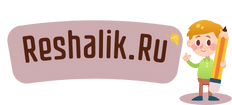1) Provide criteria for reliable knowledge — verifiability — consistency with other knowledge
2) Name knowledge that can be verified in principle, considering the current level of technological development. In this test, only three correct answers. — a cat always lands on all four paws — there is a connection between the zodiac sign and a person’s intellectual abilities — there is no heaven or hell — the foundation of the world is absolute — an eternal and unchanging essence that is understood as unified, universal, and opposed to any relative existence — a person’s psyche contains three components that determine their behavior — id, ego, and superego — the Earth has a spherical shape
3) What from this list is exclusively a scientific problem? — which parts of the brain are responsible for aversion to cheese? — how to make a lot of money by investing in the stock market? — how can the spatial resolution of magnetic resonance imaging be increased? — how to make city residents happy? — can twins tell each other apart in joint photos? — how to increase the productivity of a potato harvester?
4) Arrange scientific problems from the most general to the most specific. Write the correct order as a number (e.g., 12345): 1. Can pigeons distinguish between two different paintings or can pigeons distinguish works of art from other objects? 2. Can pigeons distinguish paintings by Renoir and Monet? 3. Can pigeons distinguish a painting from a sculpture or can pigeons distinguish expressionism from impressionism?
5) Arrange the elements of the introduction in the correct order. 1. Currently, the causes and some treatments for snoring have been studied. 2. Snoring research plays a significant role in the science of sleep. 3. However, the therapeutic possibilities of playing the didgeridoo remain unknown regarding this issue. 4. This problem has been studied by well-known somnologists such as Ivan Ivanov, Maria Fernandez, and John Doe.
6) Before you, there is an object, a subject, and a goal. What is the subject of this? — playing the didgeridoo as a method to combat snoring — methods to combat snoring — establish the therapeutic possibilities of playing the didgeridoo for the prevention and treatment of snoring
7) Determine which of these hypotheses indicate a cause-and-effect relationship. — the effectiveness of organization employees will increase if promotions are given at random — wearing socks over shoes prevents slipping on ice — a strained financial situation is associated with the risk of severe periodontal disease — sandwiches more often fall with the butter side down — there is a correlation between beard length and the likelihood of contracting microbial diseases
1. Проверяемость — знание должно быть проверяемым, то есть основано на фактах и наблюдениях, которые можно подтвердить или опровергнуть.
2. Согласованность с другими знаниями — надежное знание должно быть согласовано с уже известными фактами и теориями в данной области.
3. Основополагающая неопровержимость — знание должно быть основано на фундаментальных и неопровержимых принципах или фактах.
4. Воспроизводимость — знание должно быть воспроизводимо и повторяемо с помощью определенных экспериментов или наблюдений.
5. Не зависит от субъективной позиции исследователя — надежное знание должно быть независимо от личных предпочтений и мнений исследователя.
6. Практическая полезность — знание должно иметь практическую ценность и применимость.
Пример использования:
1) По критерию проверяемости: Заинтересованный студент может провести эксперимент, чтобы определить, всегда ли кошка при падении летит на все четыре лапы.
2) По критерию согласованности: Исследователь проверяет, существует ли наблюдаемая связь между знаком Зодиака человека и его интеллектуальными способностями.
3) По критерию неопровержимости: Здесь утверждается, что неба и ада не существует.
4) По критерию воспроизводимости: Исследователь проводит эксперименты, чтобы понять, является ли фундамент мира абсолютным, вечным и неизменным.
5) По критерию независимости от субъективной позиции исследователя: Знания, основанные на объективных данных и фактах, не зависят от личных мнений.
6) По критерию практической полезности: Исследователь оценивает, какая практическая польза может быть получена из полученных знаний.
Совет:
Для понимания надлежащих критериев надежного знания, студенту полезно будет проводить собственные наблюдения и эксперименты, чтобы увидеть, как конкретные факты подтверждают или опровергают определенные знания. Также важно различать между объективной и субъективной информацией и понимать, как объективные, проверяемые и повторяемые знания являются более надежными и полезными.
Дополнительное задание:
Представьте класс-лабораторию, в которой студентами проводится эксперимент, чтобы проверить, всегда ли кошка при падении летит на все четыре лапы. Объясните, как будет проходить этот эксперимент и какие результаты можно ожидать.
